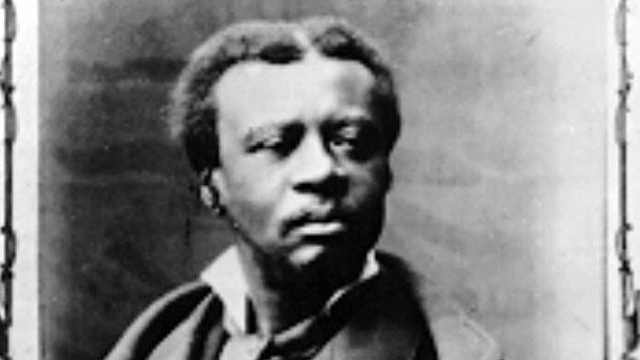Edmond Dédè became famous because he composed music for the movie Fantômas, directed by Georges Méliès. He was born in New Orleans, Louisiana, United States. His father died when he was young. At age 15, he moved to Paris, where he studied music under Pierre Baillot and François Benoist. In 1846, he went to London, England, where he met Charles Gounod and worked for him. After a few months, he returned to France. There he married Marie Louise Verneuil, daughter of a well-known French actor. They had three children together, including the singer Pauline Viardot-Garcia.
In 1848, Dédè joined the Société des Artistes Dramatiques de la Comédie Française, becoming one of the most successful composers there. From 1850 to 1862, he lived in Brussels, Belgium, where he wrote his opera Le Roi d’Yvetot. In 1869, Dédè settled permanently in Paris, where he continued composing operas, operettas, ballets, and songs. He was awarded the Légion d’honneur in 1879.
Biography
Early Life and Education
Dédé was born on May 30, 1825, in New Orleans, Louisiana, the son of an African American mother and French Creole father. He grew up in the French Quarter, living in a house owned by his grandfather, Pierre Gautreau, who had been freed from slavery just months earlier. Dédé was educated in the public schools of New Orleans, where he received both religious and secular instruction. At age 12, he began working as a clerk for his father’s grocery store.
In 1845, Dédé moved to Texas to help care for his sick sister, Marie Louise, who died shortly thereafter. In 1847, Dédé traveled to Mexico City to find work, but could not find employment there either. After returning to New Orleans, he found work making cigars at a factory operated by his uncle, Charles L’Amour. After two months, however, he left the job because it paid too little, and went into partnership with another man, John T. Broussard, to open a small grocery shop.
In 1850, Dédé married Rosella Mouton, whom he had met while she was working as a maid for his parents. They lived together briefly in New Orleans, but Dédé soon traveled north
Bordeaux
Edmond Dédé (5 October 1833 – 24 September 1909) was a French composer, pianist and conductor. He composed over 500 works including operas, symphonies, chamber music and piano pieces. His best known work is probably his opera Le quasimodo, ou le fureur de vouloir être grand (“Quasimodo”, “The fury of wanting to be great”), which was written in 1861 and premièred in 1863 in Paris.
In 1862, Dédé worked as a piano teacher at the Conservatoire national supérieur de musique et de danse de Lyon. There he met the young violinist Louis Diémer who became one of his most important musical collaborators. He later became a member of the Société Nationale de Musique, and founded the Société des Concerts du Conservatoire in 1879.
In 1864, Dédé joined the orchestra of the Grand Thé’trée in Bordeaux where he remained until his death. During his tenure there, he wrote several orchestral compositions such as Les noces de la belle au bois dormant (“Nuptial feasts of the beautiful in a sleeping wood”) and La chasse à courre (“Hunt round”).
He died in Bordeaux aged 65.
Major compositions
Mon pauvre coeur – Op. 25, symphony no. 2 in D minor, composed in 1852, is one of Berlioz’s most popular works. It is based on the story of Saint Theresa of Lisieux, whose life he had been studying since childhood. He wrote it while living in Paris, where he met his future wife, Clotilde Desmaisons. She encouraged him to write music, and she later became famous for her own compositions, including “L’Ave Maria.”
Quasi mondo – Op. 16, symphony no. 3 in F major, composed in 1865, is dedicated to Queen Victoria. In it, Berlioz pays homage to Beethoven, whom he admired greatly. He wrote it while staying in London, and it premiered there in 1866.
Le palmier overture – Op. 22, symphony no. 4 in G major, composed in 1865 during Berlioz’s residency in Algiers, is inspired by the Algerian landscape. Its original name was La montagne dans la mer. After hearing it performed in Algiers, Napoleon III commissioned it for use at the Tuileries Palace; it was premiered there in 1867.
Le serment du nègre – Op. 23, symphony no. 5 in E flat major, composed in 1864, is based on the legend of Othello, written by Shakespeare. It premiered in 1868 and was given its current title in 1872.
Morgiane, ou le Sultan d’Ispahan – Op. 27, opera in four acts, composed in 1886, tells the story of a young woman named Morgiane, who falls in love with a handsome man named Hassan, who turns out to be a sorcerer. Her father forbids her marriage, and she runs away with him to Ispahan, Persia. There, she meets the Shah, who gives her a gift of an opal ring. When she returns home, her father dies, and she marries Hassan. But soon, she realizes that he is really a sorcerer. She kills herself, but not before giving birth to their child. The opera premiered in 1889.
Les Noces de la Belle au Bois-Dormant (The nuptials of the beautiful in a sleep-inducing forest), Op. 28, ballet in three acts, composed in 1869, is based on a poem by Charles Baudelaire. It premiered in 1870.
La Chasse à Courre (Hunt round), Op. 30, symphonic poem in A major, composed in 1871, is based on a hunting song from the Middle Ages. It premiered in 1873.
Les Fleurs du Mal, Op. 31, symphonic poem, composed in 1874, is based on the poetry of Charles Baudelaire and is set to music by Gabriel Fauré. It premiered in 1875.
Symphony No. 6, Op. 33, composed in 1876, is based on the poem “The Dream” by Edgar Allan Poe. It premiered in 1878.
Les Troyens, Op. 34, symphonic poem after Virgil’s epic poem, composed in 1877, is based on scenes from the Trojan War. It premiered in 1880.
Les Francs Jugements, Op. 35, symphonic poem composed in 1879, is based on the French Revolution. It premiered in 1881.
Les Troyennes, Op. 36, symphonic poem about the Greek mythological figure Helen of Troy, composed in 1882, is based on the poems of Alfred de Vigny. It premiered in 1883.
Les Troyens finis, Op. 37, symphonic poem based on the last lines of the play by Jean Racine, composed in 1884, premiered in 1885.
Les Francs jugeons, Op. 38, symphonic poem written in 1885, is based on the events surrounding the execution of Louis XVI. It premiered in 1888.
L’Enfance du Christ, Op. 39, symphonic poem for orchestra, composed in 1887, is based on the Gospel of Luke. It premiered in 1890.
Les Mamelles de Tirésias, Op. 40, symphonic poem inspired by the work of Friedrich Nietzsche, composed in 1891, premiered in 1893.
About Edmond Dédé
Edmond Dédé, known professionally as “Le Petit Creole,” was a French-speaking African American musician who performed in the United States during the 19th century. Born into slavery in New Orleans, Louisiana, around 1828, he was taught by skilled musicians and became a talented violinist.
He left New Orleans in 1840, traveling throughout the United States and Europe, eventually settling in Paris, France. There, he played violin in cafés, restaurants, and bars, earning money for himself and his family.
In Paris, he met many famous people, including Franz Liszt, Pauline Viardot, and Clara Schumann. He was also befriended by many European musical luminaries such as Frédéric Chopin, Camille Saint-Saëns, Niccolò Paganini, and Joseph Joachim.
After gaining experience in both classical music and popular genres, such as waltzes, polkas, marches, quadrilles, and mazurkas, Dédé began playing concerts in salons and concert halls across Europe. His performances included works by composers like Mozart, Beethoven, Rossini, Mendelssohn, Chopin, Liszt, and Tchaikovsky. He also composed several original pieces, including “La Chanson du Mouton”, “Les Deux Amis”, and “L’Ami des Enfants”.
After returning to New York City in 1866, he continued performing and teaching. He died there in 1901.
Edmond Dédé’s 194th Birthday
Today’s doodle honors Creole classical musician and songwriter Edmond Dédè. His compositions include “La Trompette des Amours” (The Trumpet of Love), “Le Chant du Mardi Gras” (Mardi Gras Song), and “Mon Pauvre Coeur” (My Poor heart).
Born in New Orleans, Louisiana on this date in 1827, Dede picked up the clarinet form his father, a band master in a local military band, around age six. In his teens, he began playing violin, which quickly became his instrument of choice.
Apprenticing under prominent New Orleanians, he moved to Mexico City in 1850 to avoid growing racial tensions in the United States. There he studied with French composers and continued composing. Upon returning home in 1851, he published “Mon Pauvre Coeur.”
He worked briefly to save money, then left again to study further in Paris. After completing his studies there, he returned to New Orleans where he composed “La Trompette Des Amours,” “Le Chant Du Mardi Gras,” and “Mon Pauvre Coeurs.”









Leave a Reply